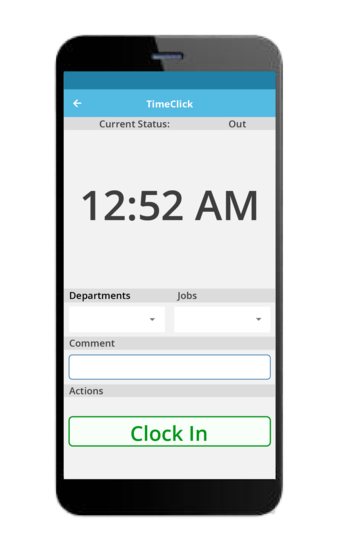We’re all familiar with feedback. Teachers give you grades and bosses give you evaluations. Almost anything you did for a company or an educational institution comes back with a number attached. Do you feel discomfort, however, imagining a conversation in the other direction? If you feel uncertainty on how to give feedback to your boss, you’re not alone.
With that said, it’s an extremely important and relevant topic. A recent SHRM (Society for Human Resource Management) survey reports 57% of American workers say managers could benefit from training.
Tensions already hang higher than normal right now with the ongoing pandemic and Great Resignation we face today. Want to see if a conversation can help you with your employer’s issues? Let’s dive into why you should and how to give feedback to your boss.
The Stress of Quitting
CNBC reports toxic work environment as the number one reason why people quit their jobs. This should not surprise anyone – why stay with people who don’t value you?
Interestingly, Inc Magazine found the number one reason people don’t quit stems from fear that the new boss will be worse.
Regardless of the circumstances that surround your work environment, job transitions can incur a lot of stress and financial costs.

Say your living expenses add up to $2,500 per month. CNBC estimates up to a total of $15,000 you may need to save so you don’t fall behind while searching for a new job.
Even if you resign only after accepting a new job offer, a new environment with new people adds a lot of uncertainty.
Tactful and professional communication may help your situation if you feel like quitting, but don’t want to.
Foundational Tips
No matter how much you contribute to your workplace, remember that you’re not the boss. That means you need to approach a feedback conversation with sensitivity and professionalism. Let’s begin with some ground-level principles.
Schedule a Designated Time
You must do all you can to eliminate as many interruptions as possible. This means you should avoid a spur-of-the-moment type of conversation. Nothing will take the wind out of your sails like having to remind your boss what you said before an interruption.
With that said, you should also set expectations for the reason for the conversation, as well as an approximate length. Failing to do so could cause your boss to walk away before the conversation has ended.
Taking these steps before you even speak with your boss can set a tone for the conversation. You’re here to talk business. This can also help to capture your boss’s attention more fully during the conversation.
Relax and Prepare Your Mindset
Try to avoid going into a feedback conversation with a lot of nerves. A nervous or anxious state of mind can cause you to stumble over your words or even make you forget a key point you wanted to bring up.

Understanding the consequences of a feedback conversation can help reduce anxiety. You can mostly expect one of two outcomes: 1) your boss accepts your feedback or 2) your boss rejects it.
This sounds obvious, and perhaps even dumb, but knowing what to expect can help set up a successful mindset for you. If #1 happens, maybe you can stay at your current position longer. If #2 happens, you already have felt like you wanted to quit.
Simplify Time Tracking with TimeClick!
Download our free trial—simple, secure, offline tracking, no fluff.

Maintain Professionalism
If your boss reacts strongly and starts yelling or speaking offensively, the last thing you want to do is to reciprocate. You will only hurt your case by doing so.
Maintaining professionalism protects you in a couple ways. First, you clearly differentiate yourself from your boss, possibly reinforcing your reasons for any negative feedback. Second, you allow yourself to use this conversation as justification for any legal action you may want to pursue.
As an example, say you wanted to talk to your boss about what you felt was discriminatory behavior. They blow up on you. If you respond and start yelling expletives and slurs right back at them, you can severely hurt your own case.
Clearly State Your Case
You cannot expect your boss to finish your sentences for you. Do not beat around the bush and hope they will know what you’re talking about.
At best, your boss could come up with an unfitting solution, since they don’t know the details of your case for feedback. At worst, nothing changes.
Use Objective Support For Your Claims
Whenever possible, try as much as possible to make claims that you can objectively support. Give specific examples.

If you appeal to subjective examples, your boss could just shoot your claims down and shut down the conversation.
Here’s an example in action. You tell your boss, “I do not feel that you treat all of your employees equally. You treat Jason so much better.”
They could simply respond, “I don’t treat him better. I bought lunch for everyone a couple weeks ago.”
Instead, you could say something like, “Boss, I don’t feel that you treat your employees equally. Jason’s only been working here for two months and you gave him a raise, but you haven’t given me one in six months.”
Sure, your boss could still say no. If they don’t give you a good reason, however, they just offered more support for why you wanted to provide feedback in the first place.
Judge the Situation
You know your boss. You know their tendencies – what makes them happy and what makes them angry. You also know how they work.
In the first place, you need to assess if a feedback conversation is even worth the effort. Even though we’re discussing how to give feedback to your boss, you should avoid such conversations in a few extreme cases.
If you genuinely fear for anyone’s safety or well-being, do not attempt to initiate this kind of a conversation. This also applies if your boss has committed any dangerous, discriminatory, or generally illegal behavior.
In these cases, you may already have sufficient evidence to get outside intervention. Know your rights and protect yourself and your coworkers.
Conclusion
A healthy work environment requires good and open communication. Your boss should give constructive feedback and the employees should do the same for the boss.
Successful feedback conversations hinge upon setting up you and your boss for success. You can do this by setting an advance appointment, preparing your mindset, and keeping a calm and professional attitude.
If this topic interests you, we have another blog in the previous part of this series that explores the other side. Read all about how to give feedback to your employees!
We at TimeClick thrive on feedback. That’s why we love the Entrepreneurial Operating System (EOS). It provides a foundation for everyone to engage in an organized manner that opens the floor for feedback in all directions.
With that said, we’d love to hear your feedback, or even to talk with you about approaching your boss. If you have any issues or questions relating to this topic or to TimeClick at all, feel free to give us a call at (435) 753-4102.
Ready to streamline your employee time tracking, boost productivity, and simplify payroll? Sign up for your FREE 14-day trial today and see how TimeClick can transform your business!
Start your FREE TimeClick Trial Today.

